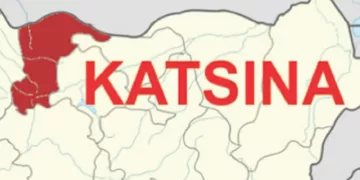As the world commemorates World MSME Day on today the spotlight rightly returns to the micro, small and medium-sized enterprises (MSMEs)—a sector long regarded as the heartbeat of Nigeria’s economy. With this year’s global theme, “Enhancing the role of MSMEs as drivers of Sustainable Growth and Innovation,” there could hardly be a more urgent context for national reflection.
In Nigeria, MSMEs account for an estimated 48 per cent of the national GDP and employ more than 84 per cent of the workforce, according to figures reaffirmed by Vice President Kashim Shettima recently. These statistics reflect the real backbone of Nigeria’s socio-economic landscape, from urban hubs to the remotest parts of the country. MSMEs are, for many Nigerians, the closest institution to governance—providing jobs, services, and hope where formal structures fail. They are the engine rooms of the Nigerian economy.
Yet, these engines are sputtering. Between 2023 and 2024, nearly 7.2 million MSMEs—about 30 per cent of the total—were shut down, according to the Nigerian Economic Summit Group (NESG). The Association of Small Business Owners of Nigeria (ASBON) puts the figure even higher, claiming 10 million members shut down operations in 2023 alone.
In our view,these closures represent shattered dreams, rising unemployment, and deepening poverty.
The causes are all too familiar. From crippling inflation, sky-high interest rates, and volatile exchange rates, to energy costs, insecurity, and policy uncertainty, Nigerian MSMEs have faced blow after blow. The fuel subsidy removal in May 2023, though a necessary structural reform, led to spiralling transportation and production costs, and subsequently, a cost-of-living crisis that has wiped out thousands of small businesses.
Beyond the harsh economic environment, access to finance remains a nightmare. Lending rates hover between 28 per cent and 30 per cent, pushing entrepreneurs toward loan sharks or informal finance. In an economy where multinationals are divesting and large-scale manufacturing is dwindling, small businesses—already fragile—have been left to fend for themselves in a storm without cover.
In this context, the Federal Government’s planned de-risking fund for MSMEs—set to launch soon—is a step in the right direction. The initiative aims to lower lending rates and improve credit accessibility. This must be backed by strong implementation and matched with state-level cooperation, if it is to deliver real change.
Beyond financing, however, market access, technology adoption, and capacity building remain critical challenges. MSMEs in Nigeria often lack the tools and knowledge to scale sustainably. Many remain informal, unregistered, and unbanked, excluded from government incentives or financial systems.
The African Continental Free Trade Area (AfCFTA) offers enormous potential for cross-border expansion.
In the opinion of this newspaper,Nigerian MSMEs must be equipped to compete—not just survive. That means reforming our infrastructure, digitising trade, and eliminating the many bureaucratic bottlenecks that plague small exporters and local manufacturers.
It is also time to design targeted support for women-led MSMEs, who face disproportionate hurdles in accessing credit, registering businesses, and scaling their operations. The National Association of Small and Medium Enterprises (NASME) has repeatedly called for interventions tailored to female entrepreneurs. These appeals should no longer be treated as footnotes in economic planning. Empowering women in business is not charity—it is smart economics.
Furthermore, expanding MSME hubs from 10 to 20, as the government plans, must be about more than ribbon-cutting. These hubs should offer real-time support—training, mentorship, incubation, digital literacy, and access to supply chains. They must be living ecosystems, not abandoned buildings with no programmatic impact.
The private sector, too, must rise to the moment. Big businesses, financial institutions, and telecoms companies can form strategic partnerships with MSMEs, investing in local supply chains, providing tech support, and easing the road to scale. MSMEs are not competitors—they are collaborators in a shared national project.
Finally, state governments must stop treating MSME development as a federal affair. The vast majority of MSMEs operate at the grassroots level—far from the corridors of power in Abuja. Governors must understand that every kiosk, poultry farm, fashion design outlet, tech start-up, or food processor is not just a business—it is a bulwark against youth restiveness, crime, and underdevelopment.
MSMEs should not just be remembered once a year in policy speeches and commemorative events. They should be at the center of national development planning. A vibrant MSME sector can lift millions out of poverty, drive innovation, foster self-reliance, and unlock Nigeria’s vast economic potential.
The hard truth is this: No country develops without a strong base of small businesses. If we truly believe in economic diversification, industrialisation, and inclusive growth, then we must stop paying lip service to MSMEs and start treating them as partners in national progress.
World MSME Day offers a timely reminder. The Nigerian government, the private sector, and civil society must work together to revive, protect, and empower the country’s most dynamic economic force. That is how to build a resilient future.











